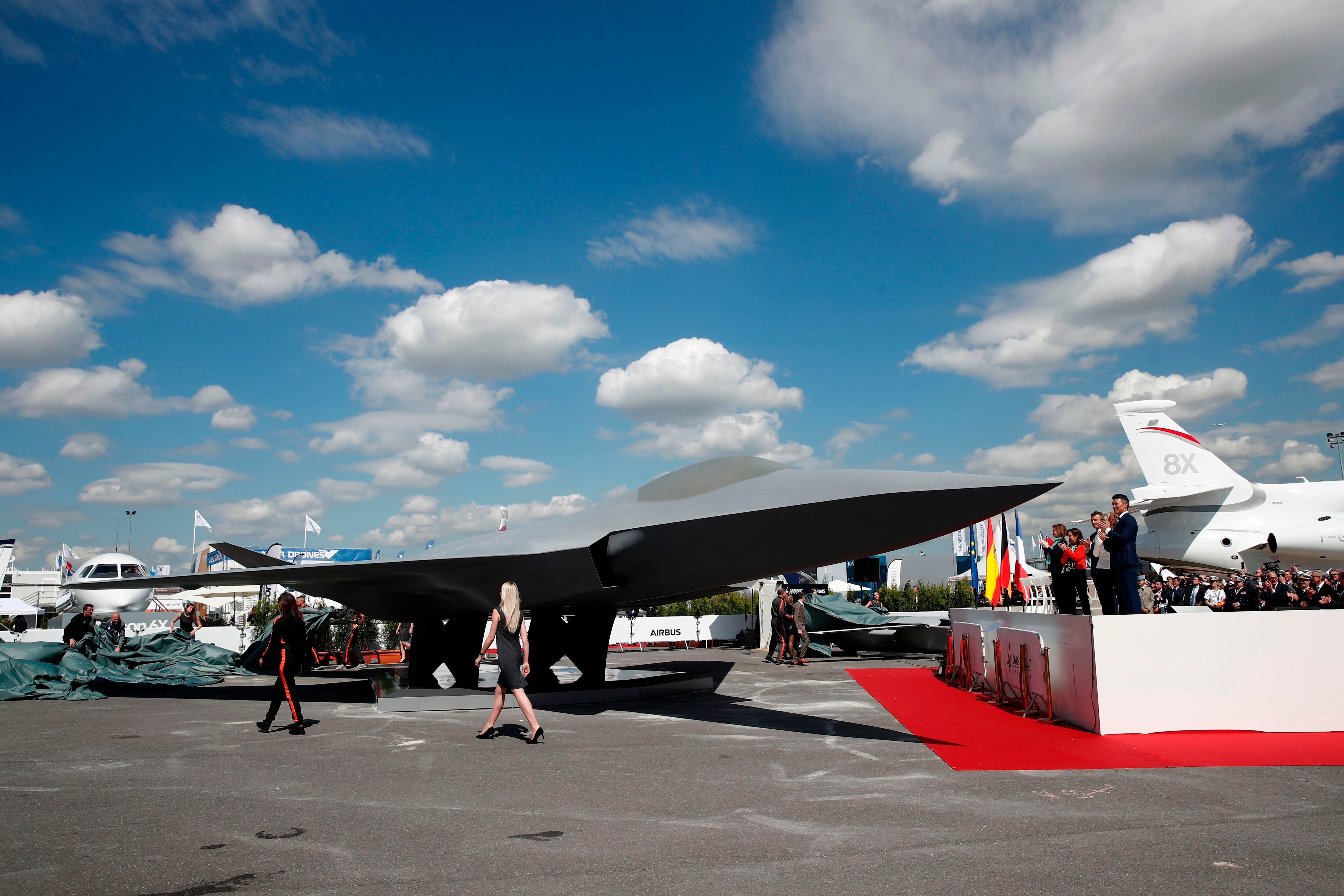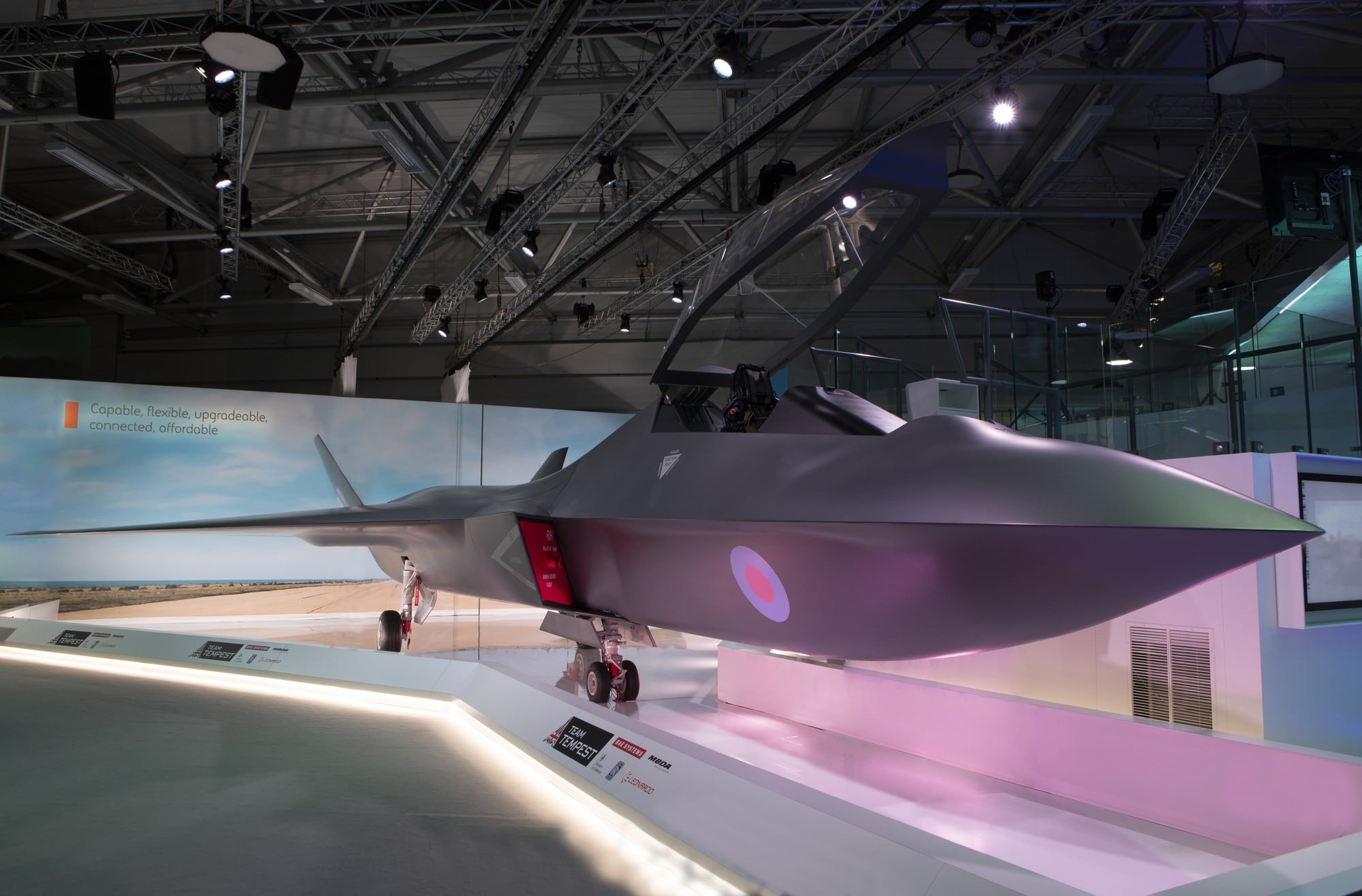LONDON – A raft of top systems suppliers have been recruited to join the team leading Britain’s development of the Tempest next-generation fighter aircraft.
Bombardier in Northern Ireland, GKN, Martin Baker and Qinetiq, alongside the UK arms of Collins Aerospace, GE Aviation and Thales, have signed up to collaborate with the BAE Systems-led team working on the future air combat system, it was announced July 20 on what should have been the opening day of the Farnborough air show before Covid-19 caused the event's cancellation.
At the same time as the announcement, Sweden’s Saab revealed it was setting up a UK hub to potentially participate in future combat air systems work between the two nations.
It’s been almost two years to the day when the wraps were taken off a plastic mock-up of a Tempest fighter at the Farnborough show.
The British revealed a BAE-led partnership, also involving Leonardo, MBDA, Rolls-Royce, that would begin investigating the technologies required for a future combat air system.
Some $2.5 billion has so far been committed to the program.
Now, just months before an outline business case to develop the program further is due to be delivered to the UK government, Team Tempest, as the industrial team is known, has signed up its first seven systems suppliers.
With the first phase of the new partnerships signed, the companies will seek opportunities to join forces on established projects and developments with the core Team Tempest partners.
RELATED

More than 60 technology demonstration activities are currently underway on future combat air systems in the UK employing 1800 people – a number expected to grow to 2500 by the end of the year.
In a statement, Defence Secretary Ben Wallace said he was “delighted seven more companies have joined this mission to work in collaboration with the MoD, under the Team Tempest banner. They will bring the ambition, invention and expertise that will deliver the breakthroughs we will depend on for decades to come.”
The rising employment levels and increasing industrial support comes at a crucial time for a program which will pretty much dictate Britain’s future position in the defense industrial world, given the air sector’s importance to jobs, skills and exports here.
An integrated defense, security and foreign policy review is underway led by Prime Minister Boris Johnson and his advisors, who are said to be skeptical of local industry's ability to deliver major programs on time and on budget and would rather buy defense equipment off the shelf.
With Covid-19 pretty much emptying government coffers, launching a multibillion-dollar program like Tempest is likely to be an issue unless the British can sign up some major international partners to share the cost.
Last year Italy and Sweden both signed up to investigate partnering with the UK on a future combat air system, and those studies are ongoing with neither country yet committing to the program.
Sweden may not have yet committed to a partnership with the British and others, but its biggest defense company, Saab, announced July 20 it was to invest an initial $63 million setting up a new future combat air center with other initiatives in the UK.
RELATED

Saab leads Sweden’s future combat air system industrial participation in cooperation with the defense ministry.
Details of where and when the company will invest in the UK are sparse, but Micael Johansson, the president and CEO of Saab, said the move demonstrated the company’s commitment to combat air development and the UK.
“Saab took the decision to create a new future combat air system center so that we can further develop the close working relationship with the other FCAS industrial partners and the UK MoD. This emphasizes the importance of both FCAS and the United Kingdom to Saab’s future,” said Johansson.
The British have cast their net beyond Europe in the search for partners, with India and Japan also having held discussions about a potential tie-up on a future combat air system.
Across the English channel France and Germany are together developing a new combat jet to a similar time frame.
Attempts to merge the two European programs have so far failed, but that’s not to say that post Covid-19 financial reality may not cause a potential tie-up to be revisited.
Howard Wheeldon, of consultants Wheeldon Strategic Advisory, said that the British government knew was at stake in the development of a future combat air system.
“Team Tempest is a very significant program for the UK. … A partnership between government, military, industry and international partners all of whom are determined to succeed,” he said.
“Industry, along with the RAF Rapid Capabilities Office, have already achieved a vast amount in a very short period of time. I, for one, am in no doubt that the government fully understands the importance of what ‘Team Tempest’ means to the UK, not only to jobs and maintaining necessary skills, but in the potential that the development has in terms of future prosperity,” said Wheeldon.
Andrew Chuter is the United Kingdom correspondent for Defense News.








